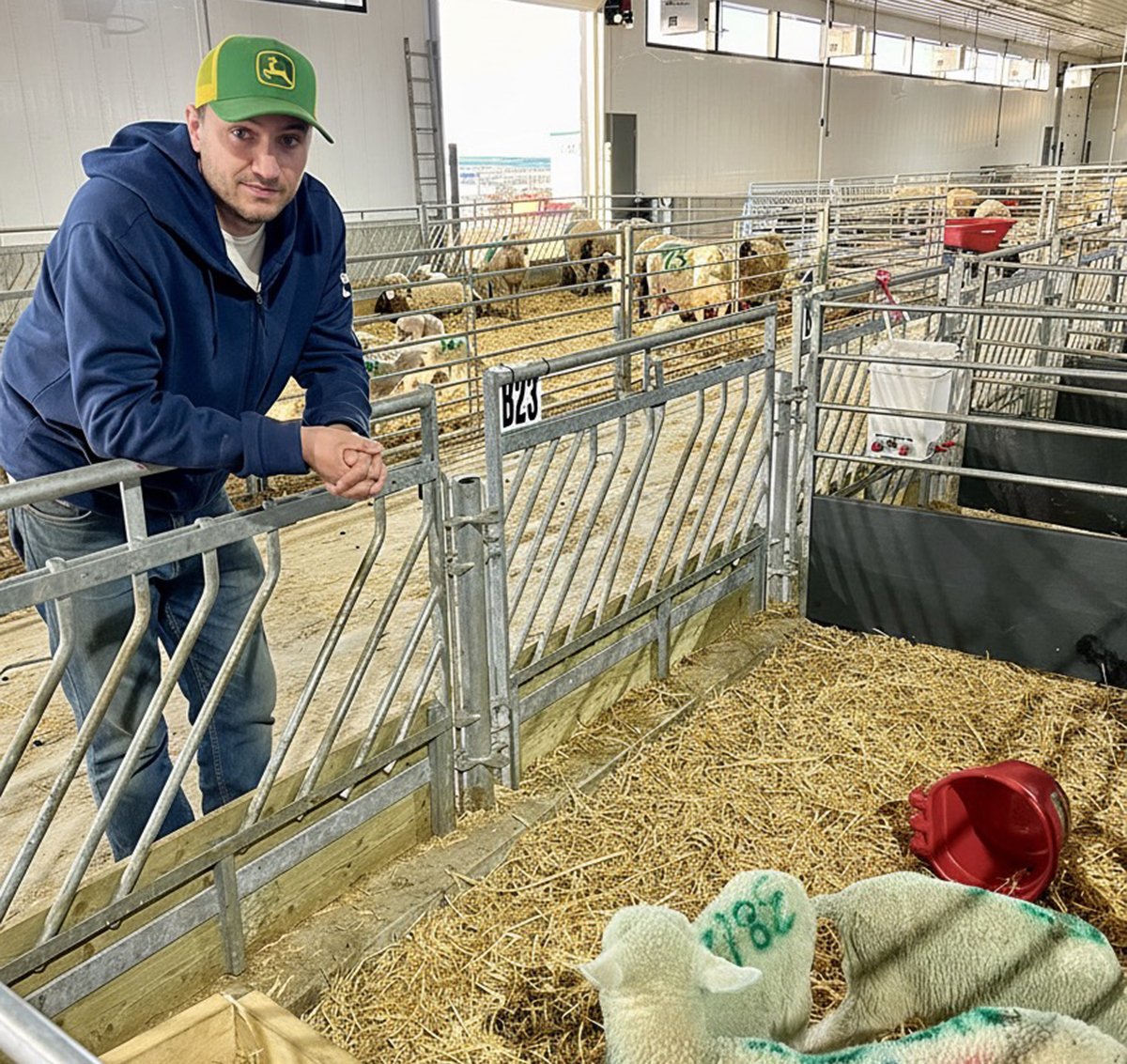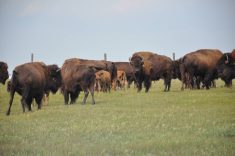RAPID CITY, South Dakota – The 49th parallel remains a hot topic for the American ruminant industry.
The American border needs to be open to Canadian beef, bison and live animals said Bruce Knight, U.S. Department of Agriculture undersecretary of marketing and regulations. He told 550 bison ranchers attending the International Bison Conference in Rapid City, S.D., that his government must be seen by its trading partners as treating Canadian exporters fairly.
“The comment period is closed on the regulation of the movement of animals from Canada into the U.S. and we are moving very quickly to examine the situation with our Canadian neighbours,” said Knight.
Read Also

Solar, sheep provide valuable farm diversification
Eric Steeves says raising sheep on forages grown under solar panels provided economic stability and perhaps even saved his family’s fifth generation southern Alberta grain farm.
“I know this is going to be one of the more controversial decisions that we are going to make and it will be in short order.”
Knight said keeping the Canadian border closed without a sound scientific basis is “hamstringing us today in negotiations with many of our exporting customers such as (South) Korea and Japan.
“We have to move quickly on this.”
Knight noted a BSE infected dairy cow in Washington state that came from Canada closed international markets to U.S. meat, costing his country $2 billion.
Dave Carter of the American National Bison Association called on Knight to move quickly to open the border to live bison and other animals older than 30 months.
“Canada needs the genetics. We need Canadian genetics. It is hard for many of our producers to meet demands for the product. Both countries need this border open for bison and cattle,” he said.
Kim Perry Butler, Canadian consul general in Minneapolis, said his office has been pushing American politicians to resume open and free trade with Canadian livestock exporters.
“A well functioning border is critical to our trade,” said Perry Butler. “The Ambassador Bridge (between Detroit, Michigan, and Windsor, Ont.) does more trade between our countries than you do with Japan.
“Both of our countries have a huge incentive to have a smart border rather than a thick border,” he said.
Perry Butler also asked the USDA to reduce the instances of new inspection fees that are charged for goods imported into the U.S.
“BSE is still an example of our countries working effectively together to argue internationally that we are both low risk countries for the disease,” he said.
He added that there were two more BSE infected cows in the U.S. after the Washington state case and that both countries need to meet international demands for traceability of livestock.
Knight told livestock producers in the audience that while traceability programs in the U.S. remain voluntary, international consumers expect that these will exist.
He praised Canada’s mandatory system and he congratulated the bison industry for leading in this area before U.S. cattle ranchers.
An audience member asked whether different U.S. government agencies could share traceability information about herds and farmers for taxation. Knight assured the producers that departmental sharing of the data is prohibited.














